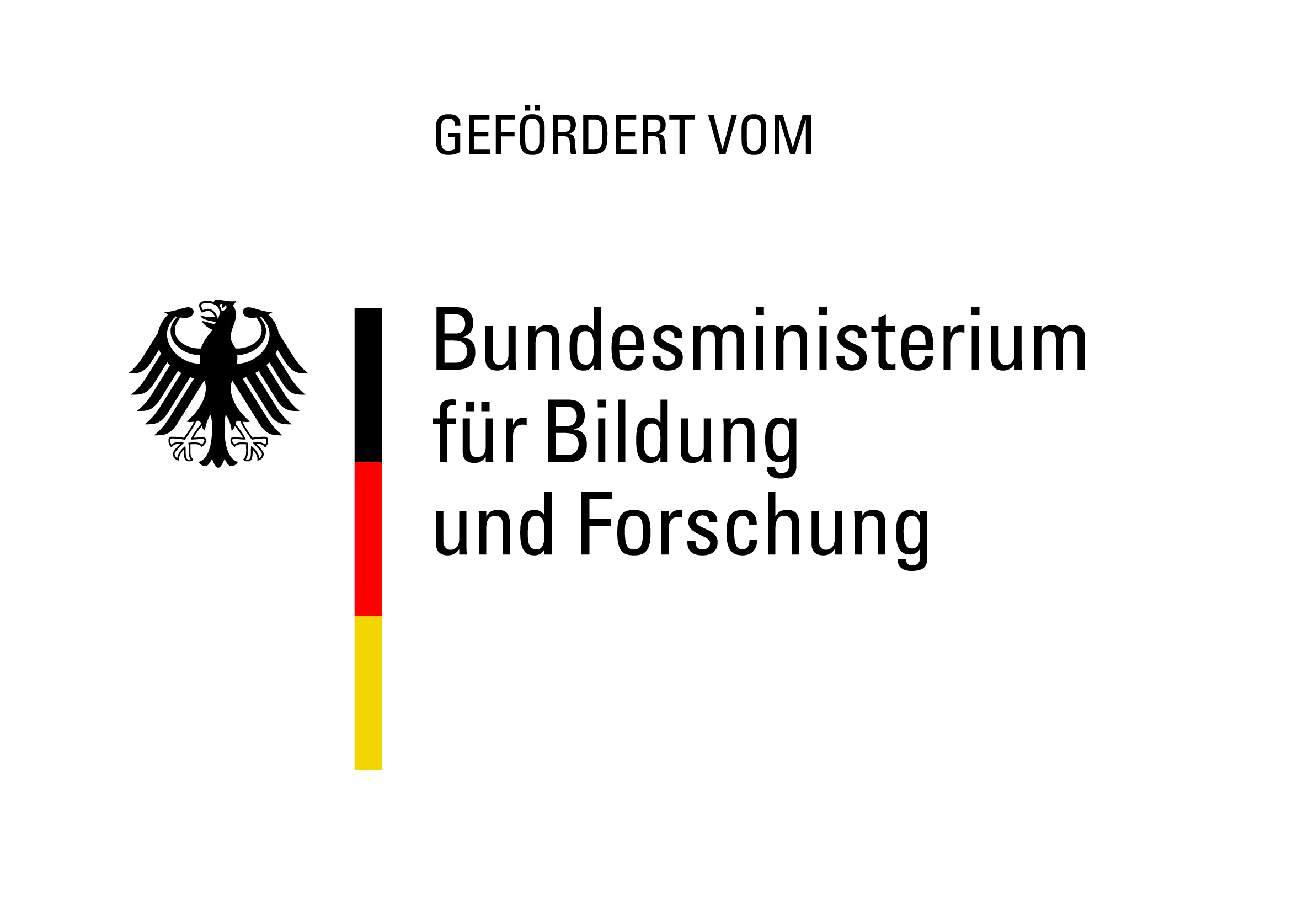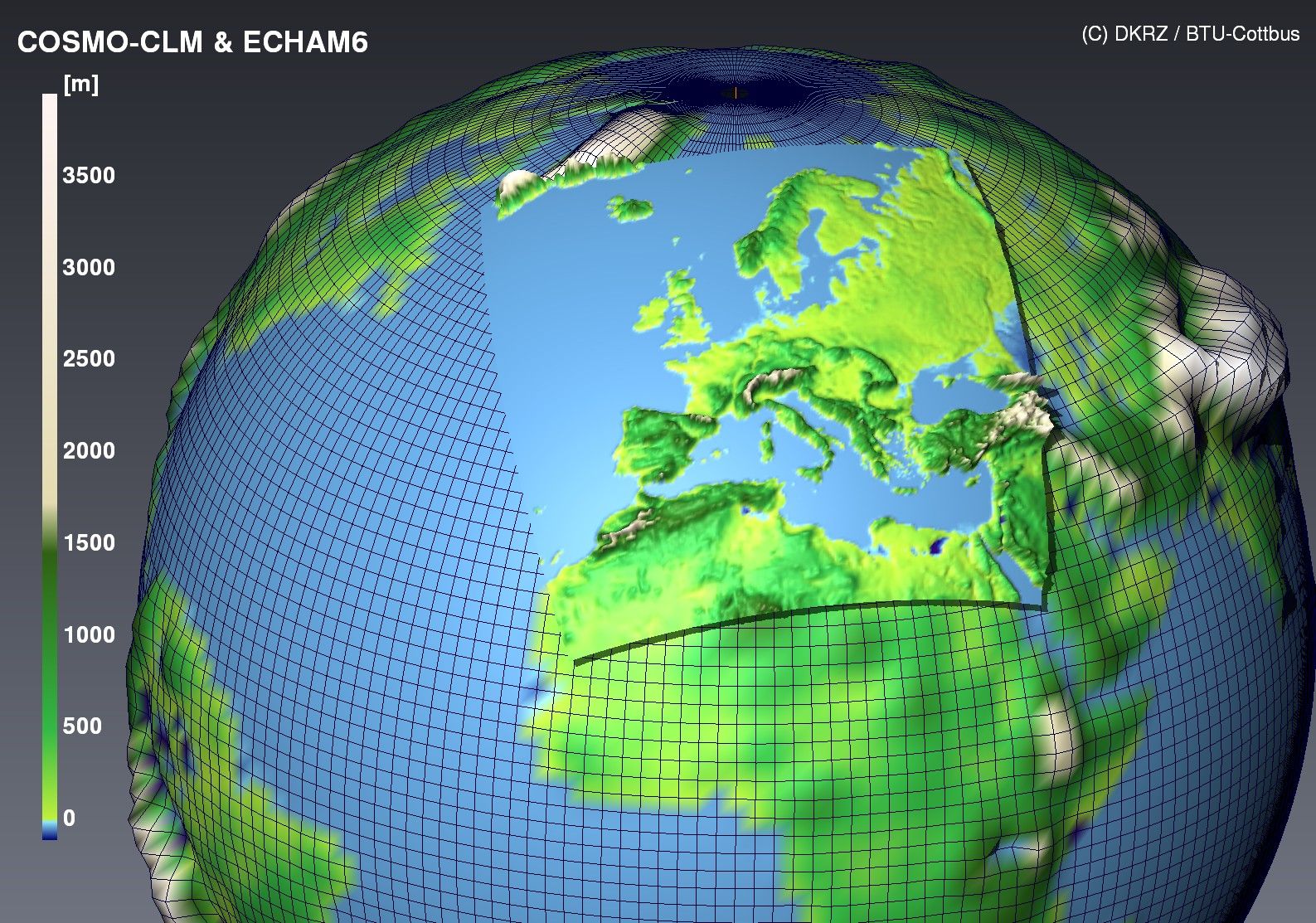MiKlip
MiKlip


MiKlip (German: Mittelfristige Klima-Prognosen) was a German research program with the aim to develop a decadal climate prediction system (Marotzke et al., 2016). The project ended in 2020. Towards the end of the program, the global forecasting system has been transferred to DWD and it will be used for the operational production of decadal predictions. MiKlip was organized into 5 modules:

The global prediction system uses the Max-Planck Institute for Meteorology Earth-System Model MPI-ESM.
Within Module C the regionalization of the global predictions was performed with COSMO-CLM. During the first phase of MiKlip two additional RCMs (REMO and WRF) were also tested.
To estimate the skill of the predictions, large sets of initialized decadal hindcasts are performed, usually covering the period after 1960 with annually starting 10-year simulations. In contrast to the un-initialized simulations (historical simulations in CMIP) the hindcast derive their initial conditions from observations via assimilation experiments using atmospheric and oceanic re-analysis.
Four generations of hindcasts have been generated in MiKlip up to now:
1. baseline0 (= CMIP5)
GCM: MPI-ESM-LR – Atmosphere: ECHAM6 T63L47; Ocean: MPI-OM 1.5° L4
Initialization - Ocean: Anomalies of temperature and salinity from an MPI-OM forced by NCEP re-analysis
Ensemble-size - 10 member every 5-years (1960, 1965,...), 3 members in-between years (1961, 1962,...)
Starting years: 1960 – 2011 (e.g. simulation period decadal1960 = 01.01.1961 – 31.12.1970) ·
2. baseline1
GCM: MPI-ESM-LR and MPI-ESM-LR (Atmosphere: T63L95, Ocean: 0.4° TP L40)
Initialization – Ocean – anomalies from ORA S4 ocean re-analysis, Atmosphere – full field ERA
Ensemble size – 10 members (LR), 5 members (MR)
Starting years: 1960 – 2016 (e.g. simulation period decadal1960 = 01.01.1961 – 31.12.1970)
3. prototype
GCM: MPI-ESM-LR
Initialization – Ocean – full field from ORA S4 and GECCO2 ocean re-analysis, Atmosphere – full field ERA
Ensemble size – 15 (ORA S4 init.) + 15 (GECCO2 init.)
Starting years: 1960 – 2014 (e.g. simulation period decadal1960 = 01.01.1961 – 31.12.1970)
4. preop (pre-operational)
GCM: MPI-ESM-HR (Atm: T127L95, Ocean: 0.4° TP L40)
Initialization – as in baseline1
Ensemble size – 5 members (CMIP5 forcings), 10 members (CMIP6 forcings)
Starting dates: 01.11.1960 – 01.11.2017
Additionally, experiments have been performed to investigate the climate variability and trend over the whole 20th century for Europe, including re-analysis driven simulations based on NCEP 20CR and ERA20CC, MPI_ESM-LR decadal hindcasts, and historical simulations.
Model domain
For the downscaling for Europe the EURO-CORDEX domain is used:

For Europe, the simulations are performed on a rotated grid with the pole at 162°W longitude and 39.25°N latitude. The domain covers approximately the region from about 22°W to 45°E longitude and 27°N to 72°N latitude. The resolutions applied are 0.44° (EUR-44) and 0.22° (EUR-22) and, for Central Europe, 0.0625° (CEUR-0625).
The recommended COSMO-CLM setup is used for the simulations:
COSMO4.8_clm19 (CCLM4-8) for baseline0 and baseline1
COSMO5.0_clm9 (CCLM5-0) for prototype and preop
Simulations performed with COSMO-CLM
Decadal Hindcasts
Ens. Generation | Model version | Grid | Starting years | Ensemble members | # Simulation years |
|---|---|---|---|---|---|
baseline0 | COSMO-CLM4-8 | EUR-22 | 5 (1960, 1970, 1980 1990 2000) | 10 | 500 |
COSMO-CLM4-8 | CEUR-0625 | 5 (1960, 1970, 1980 1990 2000) | 4 | 200 | |
baseline1 | COSMO-CLM4-8 | EUR-22 | 5 (1960, 1970, 1980 1990 2000) | 10 | 500 |
COSMO-CLM4-8 | EUR-44 | 57 (annual 1960 – 2016) | 10 | 5700 | |
prototype | COSMO-CLM5-0 | EUR-22 | 5 (1960, 1970, 1980 1990 2000) | 1 | 50 |
preop | COSMO-CLM5-0 | EUR-22 | 57 (58) (annual 1960 – 2017) | 5 (10) | 2850 (5800) |
20C_EUR | COSMO-CLM5-0 | EUR-22 | 100 (annual 1910 – 2009) | 3 | 3000 |
Evaluation Simulations
Ens. Generation | Model version | Grid | Period | Ensemble members | # Simulation years |
|---|---|---|---|---|---|
ERA40 | COSMO-CLM4-8 | EUR-22 | 1961 - 2002 | 1 | 42 |
ERAInterim | COSMO-CLM4-8 | EUR-22 | 1979 - 2010 | 1 | 32 |
ERA40+ERAInterim | COSMO-CLM4-8 | EUR-22 | 1961 - 2010 | 1 | 49 |
ERA40+ERAInterim | COSMO-CLM4-8 | EUR-44 | 1961 - 2010 | 1 | 49 |
ERA40+ERAInterim | COSMO-CLM5-0 | EUR-22 | 1961 - 2016 | 1 | 56 |
NCEP 20CR | COSMO-CLM5-0 | EUR-22 | 1900 - 2009 | 3 | 110 |
ERA20CF | COSMO-CLM5-0 | EUR-22 | 1900 - 2010 | 1 | 111 |
Un-initialized (historical) simulations
GCM | Model version | Grid | Period | Ensemble members | # Simulation years |
|---|---|---|---|---|---|
MPI-ESM-LR (CMIP5) | COSMO-CLM4-8 | EUR-22 | 1961 - 2010 | 1 | 49 |
MPI-ESM-LR (CMIP5) | COSMO-CLM4-8 | EUR-44 | 1961 - 2010 | 7 | 49 |
MPI-ESM-HR (CMIP5) | COSMO-CLM5-0 | EUR-22 | 1900 – 2030 (1961-2030) rcp45 after 2005 | 3 (2) | 131 (70) |
Additional Experiments
Name | Project | Details |
|---|---|---|
Africa | Decadal predictions of the West-African Monsoon and tropical Atlantic cyclogenesis 3 RCMs (COSMO-CLM4-8, REMO, WRF) Resolution 0.44° (extended CORDEX Africa 4 Decades, 3 Members | |
Central America/North-Atlantic (CANA) | 2-way nested coupling of MPI-ESM and COSMO-CLM | |
Regionally coupled ocean | Interactive coupling of COSMO-CLM5-0/NEMO for Mediterranean- Nordic, and Baltic-Sea | |
Alternative SVAT | Decadal hindcasts (preop generation) with COSMO-CLM5-0-Weg3D |
Many more experiments have been performed including statistical dynamical downscaling with COSMO-CLM.
Contributing Partners MiKlip Phase II
Karlsruhe Institute of Technology: Christoph Kottmeier, Hendrik Feldmann, Hans-Jürgen Panitz, Gerd Schädler, Joaquim G. Pinto, Marcus Breil, Natalie Laube, Julia Mömken, Benjamin Buldmann, Fanni Kelemen
Deutscher Wetterdienst: Barbara Früh, Sascha Brand
University Frankfurt: Bodo Ahrens, Anika Obermann, Nora Leps, Naveed Akhtar, Cristina Primo Ramos
University Cologne: Mark Reyers
University Würzburg: Heiko Paeth, Jingmin LI